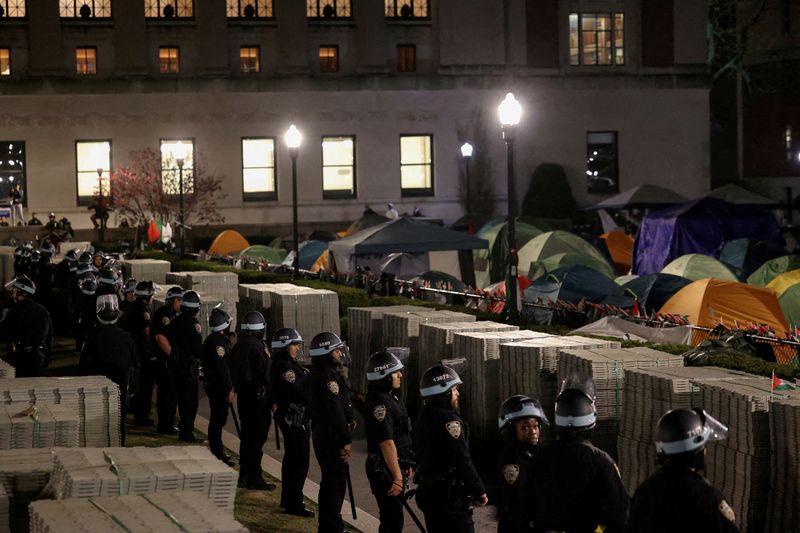Columbia University settles lawsuit over campus safety amid protests
2024.06.04 14:55
By Jonathan Stempel
NEW YORK (Reuters) – Columbia University will provide safety escorts and take other steps to protect its students, to settle a lawsuit claiming its campus had become unsafe during recent pro-Palestinian protests.
Under a settlement filed on Tuesday in Manhattan federal court, the Ivy League school will through year end offer round-the-clock “walking escorts” across campus, and appoint a “Safe Passage Liaison” to address student concerns over protests.
Columbia’s chief operating officer will get authority to order alternative means to enter and leave the campus, and students unable to finish exams or key assignments because of protests can seek accommodations.
The university also pledged “a continued commitment to the academic tradition of free thought and open debate.”
Protests sprouted on college campuses around the world this spring, with many students establishing camps and demanding that schools divest from Israel over its treatment of Palestinians during the war against Hamas.
The Columbia encampment began on April 17, and a camp there was dismantled following the April 30 arrests of dozens of protesters who had taken over a nearby academic building.
University President Minouche Shafik has pledged to make Columbia “safe for everyone.”
Tuesday’s settlement resolves a proposed class action filed by a female Jewish student known as C.S.
She said Columbia’s decision to let students take classes online in response to the protests showed that the school had become too dangerous for Jewish students to receive the education they were promised.

A Columbia spokeswoman said the university remained “committed to our number one priority: the safety of our campus so that all of our students can successfully pursue their education and meet their academic goals.”
Jay Edelson, a lawyer for C.S., said: “This settlement sets the bar for how Columbia must protect its students. The next step for the Columbia community is just as important: we’re looking toward a return to a real debate on campus.”








